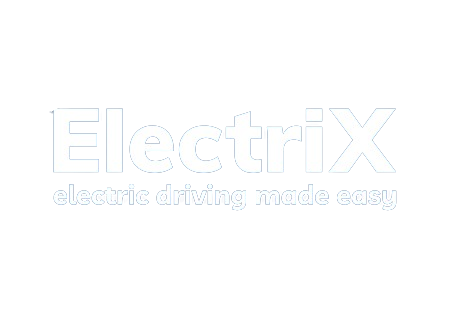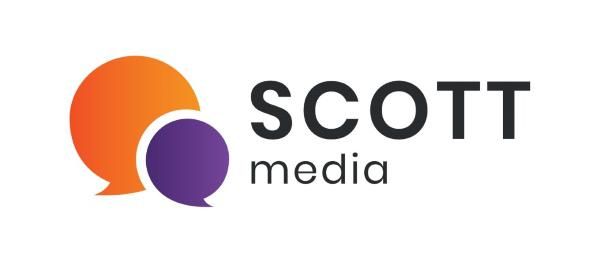What can we expect from the 2020 budget?
In a week when we all seem to be obsessed with that virus, when leaving the EU has largely disappeared from the headlines and there are political wrangles over this and that – it’s easy to forget there’s a Budget next week.
It will be the first post-Brexit Budget and who knows what it will hold. Labelled a landmark budget, one thing is for sure is that there will be something in it which will affect all of us in one way or another. It might be a few pence more on alcohol or fuel – or a few pence less. It might be a larger tax here and a smaller tax there.
The new Chancellor Rishi Sunak will take centre stage next Wednesday (March 11) and there have been some indications of what the Budget could hold. However now rumour is rife that this Budget will change dramatically into one of ‘protection’ over Covid-19 especially now that the USA has reduced interest rates in response to the outbreak. An outbreak – which at time of writing – has had a very limited impact here.
Setting that aside, it’s likely that the IR35 implementation will now go ahead even though HMRC as promised a ‘light touch’ in the first year. This will have a big impact in the private sector, though it will only apply to services from April 6 2020 and it doesn’t appear there will be any retrospective claiming of tax.
This is a move where those freelancers or contractors who are working through PSCs (personal service companies) will be classed now as employees and will be taxed accordingly. These companies – quite common in areas like recruitment, IT and similar – often place people into sectors as freelancers and often they will work in the same office for the same company consistently for long periods.
In other words, if it were not for the PSC that person would be an employee of the company needing their services. IR35 is seen as something of a ‘swear word’ in the small business community, as those affected currently only pay tax on their profits. Now if someone is contracting through one of these companies and working in just one bigger company all of the time they will be classed as an employee and taxed accordingly. It means more tax for thousands and thousands of people – and frankly the need for some PSCs could drain away. Freelancers have tried to fight this as they see these personal service companies as an essential route to consistent work and they don’t feel they should be penalised for seeking employment this way. It’s a thorny issue.
It does appear there may be a tax cut with the National insurance threshold being raised before contributions have to be made. However for the consumer this will be probably be erased by the proposal to allow local authorities to increase council tax by a further two per cent to help cover the rising costs of social care. The government did make a pledge that no one should have to sell their home to fund the cost of their care – and quietly this may be one step towards that.
For consumers, Which? has been vocal about something which has affected everyone – it’s much harder to get hold of cash these days. The organisation is calling for continued access to cash. With the continued closure of bank branches and cash machines disappearing (this has happened quite a bit in Swindon, particularly around the West Swindon District Centre) – taking out cash is a lot harder these days. This is a particular concern around older people who are not on board (and some don’t want to be) with a more cashless society. Soon they may have no choice.
What do business owners feel about that little red suitcase and what it might hold? We asked some Total Guide business contacts to share their thoughts.
Angela Ashworth, co-founder of tech-led accountancy firm Purple Lime, said: “There will probably a lot of re-forecasting going on behind the scenes at present, as the Budget may not be the one originally envisaged as a result. We have had Brexit, flooding, and are now amidst corona virus.
“All create uncertainty in the business world, frustration for business owners and nervousness amongst customers. I hope for a realistic plan off the back of these factors which is well communicated with clarity. This will enable the business world to make decisions with some confidence.”
James Phipps, local entrepreneur with interests in various companies, said: “IR35 will be phased in, we should see a removal of pension relief for highest earners, tax relief on Research & Development for climate affecting tech. There could be an increase in corporation tax for corporates and re-do business rates so warehouses are level with retail units.”
Nicki Kinton of Confident Cashflow said: “I'm hoping to see a commitment to boosting the powers of the office of the Small Business Commissioner and also support for Lord Mendelssohn's Private Member's Bill, to promote better payment practices in the UK in an effort to stimulate cash flow between UK businesses in a post Brexit Britain. Unfortunately I think this is more aspirational than expectation.”
Rob Stokes and Michael Blaken of Optimum Professional Services both shared their views.
Rob Stokes, Head of Audit said he hopes the Chancellor will announce a simplification to the employment process for small businesses, including unification of the PAYE and National Insurance contributions thresholds. In light of Coronavirus, access to funding for business affected is also essential.
Michael Blaken, Account Director at the firm which offers accountancy and legal services, added: “We would like to see some help for taxpayers, with an increase in the income threshold at which the personal allowance is reduced, currently £100,000. For savers, we would like the government to raise the annual £40,000 limit for pension contributions.”
Michael added he hopes there will be no change to Entrepreneur Relief for Capital Gains Tax purposes nor any further changes to Stamp Duty Land Tax.
Professional photographer Barbara Leatham said: “I think the corona virus will make the Budget a cautious one. It’s got the whole world holding its breath.”
Chris Goodchild of SupportWise which offers business IT support said: “I'm looking forward to the possibility of an IR35 review though this has been deemed unlikely. The risk of the changes, beyond the financial ones, are that IT contractors will leave clients before the reforms come into place. This will not only leave companies in a difficult situation but will also mean that many contractors seeking work all at once.
“The First Homes Scheme, which looks to reduce costs of buying a first home locally are a welcome change for those who are looking to get on the ladder, however, as this has only just been announced, it's possible this won't be part of this Budget.
“The increase in the National Insurance thresholds to £9500 will save employees earning over £12,600 about £100 per year in NI, coupled with a potential tax reduction and would be a good change for people earning the minimum wage or National Living Wages.”
Hadi Brooks, owner of Rays Ice Cream, said: “Thinking short term - further provision for statutory sick pay if employees are forced to self isolate. Currently small businesses bear the full cost and it cannot be reclaimed, maybe we should be able to reclaim it in the short term? And what about the self-employed, some provision for SSP for them in the short term? More widely, I'm hoping the VAT threshold is not lowered, and if the 20% could be reduced that would be ideal.”
Martin Gurney, tax specialist at Haines Watts Swindon said:
What do we know?
- Government spending plans have escalated
- Government borrowing is likely to exceed forecasts
- The target date at which the Budget is ‘balanced’ (revenue matching expenditure) is likely to be delayed
These are all indicators the Government will need to raise revenue, which in turn suggests an increase in tax. However we also know economic conditions are being significantly impacted by:
- Brexit and on-going trade negotiations
- Corona virus
Having won the General Election the Government can, perhaps, afford to make some unpopular changes to taxes, therefore we may see some more significant tax measures, moving away from the more neutral position of previous Budgets. I do not profess to having any insight into what these might be.
We do know that the Government is likely to target areas of tax such as Entrepreneurs’ Relief in its bid to raise tax revenues, but the timing and scope of such measures is extremely uncertain.
I would therefore be entirely unsurprised if the Budget was essentially ‘postponed’ (kept very tax neutral until the economic conditions are clearer) with perhaps an interim Budget later in the year, with the prospect of some significant tax increases to fund spending plans at that stage.
Jamie Martin, of Correct Careers Coaching, offering modern sales training to businesses across the South West said: "Regarding the UK budget, my predictions are that the National Insurance threshold will increase, financially benefiting in a tax cut for workers earning more than £12,600 per year. This increase in tax cuts will encourage some of the UK workforce to strive for higher-earning jobs.
"I hope the budget will not remove the major incentives for new business owners by changing or abolishing the entrepreneurs' relief. I fear this will cause some individuals to abandon the idea of starting up a new venture due to financial strain.'
Finally our own founder Liz Hutchings has a long wish list. She said:
“A priority will be a clear mandate for how the government need to help small businesses get through losses incurred due to the corona virus, Covid-19. There's much talk about the bailing out of big companies and airlines however nothing for small businesses apart from the possibility of temporary business rate relief.
“Even advice and guidance at this stage would be useful; i.e. how to approach planned growth/should businesses strip back and hold-off on growth plans until we are clearer on the effects?
“Broadband speed is a massive issue for us in our Stratton office in Swindon with no immediate solution available. It sounds like the government will be rolling out high speed broadband across the UK and I hope that is made a priority.
“Raising the threshold for National Insurance will help all employees and put money back in their pockets.
“Clear homeownership schemes and affordable housing to help younger members of the team get on the property ladder and settle.
“As well as improvements to roads and infrastructure to help us and our staff and franchisees to travel more freely and quickly, we have electric vehicles and encourage staff and franchisees to do the same however the lack of electric charging points is off putting for most - this needs to change quickly to enable us to cut our emissions.”
In an ever-changing situation, what will the business landscape look like by the time the Chancellor takes the stand next week in Parliament?


















